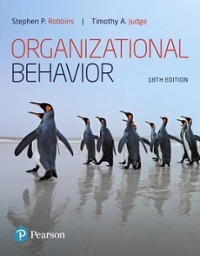We all have cheated at something. We may think that deciding to cheat is a product of
Question:
We all have cheated at something. We may think that deciding to cheat is a product of cold calculation: Is the benefit worth the cost? In some cases, this appears to be true—a recent study found that students who are studying in a non-native language, who believe they would obtain a lower grade, and who prefer risk are more likely to buy essays. They are more likely to resist, however, when they think they may be caught and when the penalty is high. In other cases, cheating is less of a conscious decision than expected. Here are some realities of cheating:
1 Cheating isn’t a cash deal. People would rather take items or objects than cash.
2. Cheating is contagious. When we see others cheat, we are more likely to do it ourselves.
3. Moods affect cheating. People cheat more when they are angry or tired.
4. Incentives to cheat do work. If the goals are obtainable only through cheating, people will likely cheat more.
5. People like to cheat in secret. When people can be out of sight, they tend to cheat more.
Knowledge of OB can help limit cheating incidents. For example, one recent study suggests that heightened enthusiasm in leaders may curb followers’ tendency to cheat. Making certain that people realize there is an ethical aspect to their decisions reduces cheating, as does monitoring people in performance settings.
Questions
1. Do you know classmates who have cheated in school? Have you ever cheated?
2. The authors of one study noted that people feel they don’t need to be objective in evaluating potential cheaters. Do you agree? Why or why not?
3. Do you think that if we admitted to ourselves when we cheated, we would be less likely to cheat in the future? Why or why not?
Step by Step Answer:

Organizational Behavior
ISBN: 9780134729329
18th Edition
Authors: Stephen RobbinsTimothy JudgeTimothy Judge, Timothy Judge





